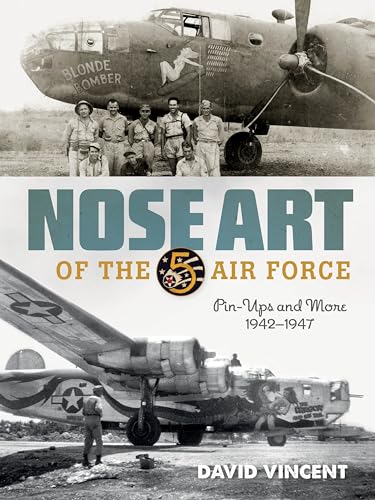
South Pacific Air War
by Richard Dunn
"The Role of Airpower in the New Guinea and Solomon Island Campaigns, January 1943 to February 1944"
Popularity
4.77 / 5
* A book's popularity is determined by how it compares to all other books on this website.
Where to buy?
Buy from Amazon* If you buy this book through the link above, we may receive a small commission at no extra cost to you.
South Pacific Air War by Richard Dunn
Details
War:
World War II
Perspective:
Pilots
Military Unit:
US Air Force
True Story:
Yes
Biography:
No
Region:
Pacific
Published Date:
2024
ISBN13:
9780764367878
Description
Brief Summary
South Pacific Air War by Richard Dunn is a detailed account of the crucial role that airpower played during the New Guinea and Solomon Island campaigns in World War II. Dunn provides an in-depth exploration of how aerial operations influenced the outcomes of these critical battles, offering readers a comprehensive understanding of the strategic importance of air warfare in the Pacific theater.
Main Themes and Topics
The primary theme of South Pacific Air War revolves around the tactical and strategic use of airpower during key battles in the South Pacific. Richard Dunn delves into the complexities of aerial combat and its significant impact on the New Guinea and Solomon Island campaigns. By focusing on air operations, Dunn sheds light on the often underappreciated aspect of warfare that was instrumental in gaining the upper hand in the Pacific arena of World War II. This meticulous exploration includes the challenges faced by pilots, the technological advancements of aircraft, and the strategic decisions made by military leadership.
Writing Style and Tone
The writing style of Richard Dunn in South Pacific Air War is analytical and detailed, catering to both history enthusiasts and readers interested in military strategy. Dunn's tone is authoritative, reflecting his extensive research and deep understanding of the subject matter. He presents complex military operations in a clear and accessible manner, ensuring that readers can grasp the intricacies of air warfare without requiring prior expertise. Through precise narrative and thorough analysis, Dunn effectively conveys the stakes and ramifications of airpower in the South Pacific campaigns.
Criticism
While South Pacific Air War is praised for its comprehensive coverage and detailed analysis, some readers may find the book's heavy focus on military strategy and tactics potentially overwhelming. The dense information on aerial operations might not appeal to those looking for a more general overview of World War II. Additionally, the book's focus on a specific aspect of the war may leave readers seeking a broader perspective feeling somewhat limited in scope. However, for those specifically interested in the role of airpower, Dunn's work is an invaluable resource.









